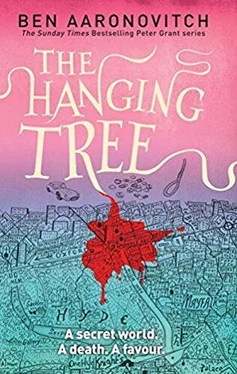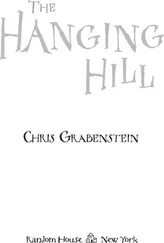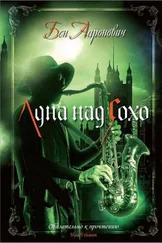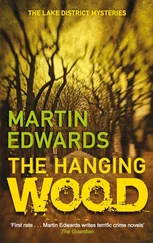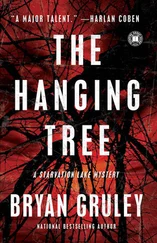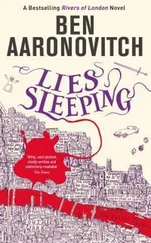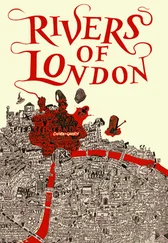‘Hunting,’ said Beverley. ‘In her own way.’
So I went hunting too, also in my own way, by adopting the ancient and traditional stance of the lazy copper. Which is in front of his AWARE terminal with a double shot latte and a jumbo-sized pack of prawn cocktail flavoured crisps. I had to hunch up a bit because Guleed was using her own terminal to compile a classically mealy-mouthed Falcon case report.
‘Okay,’ she said. ‘We say he was armed, but what do we say he was armed with?’
‘If you put “knowing he was likely armed” that covers a multitude of sins,’ I said.
‘Armed with what?’
‘Weapons with Falcon characteristics.’
‘You know, one day this is all going to come out in the open.’
‘Don’t worry. You’ll be a Chief Super by then.’
‘Not if I keep writing reports like this.’
‘Got him,’ I said.
‘Got who?’ asked Guleed.
Zachary Palmer is a skinny little white boy who is probably half something exotic, which makes him a useful contact when I want to know what’s going on in the demi-monde, e.g. where some red-headed fox might be hiding. Less useful of late, because he’s been making himself purposefully unavailable on account of him, at one time, being Lesley May’s lover. We all suspect he still is or, rather, we think she turns up every so often and bangs his brains out – she wouldn’t be stupid enough to settle into anything regular or permanent, nothing that will get her caught. There was a time when tracking him down would have involved more legwork than I’d care to expend, but since the business with the underground pigs – don’t ask – he’d become semi-respectable, working as liaison for the Quiet People with Crossrail project managers. That meant regular pay, which these days means a bank account, which we’ve had passively monitored as part of Operation Carthorse – the hunt for Lesley.
I used to worry that he’d sussed us out because of the way he’d withdraw large amounts of cash and then live off that for a couple of weeks. But soon the siren call of instant card payment caught up with him, and now he chips and pins like the rest of us. I scanned his transactions and noted some regular payments to a branch of Greggs on Kilburn High Road at the same time every afternoon. After that it was a simple matter of ‘borrowing’ a pool car and having my coffee out.
The only car available was a bloody Silver Astra which was so obviously an unmarked police car that it might as well have had an orange BILL ON BOARD sticker in the rear window. So I parked it around the corner. And, after picking up a coffee and steak slice for myself, took my place at the bus stop opposite. Bus stops are great temporary stops for surveillance since they give you a legitimate reason to be standing around looking bored and the adshell shelters you from the rain.
Despite the weather, the High Road was heaving with schoolkids, mums and buggies and people out shopping. Given the rain, I’d swapped out my suit jacket for my stakeout hoodie, which rendered me effectively invisible.
Given that Zach’s attitude towards punctuality had always been one of stunned incomprehension, the time of his daily transactions were remarkably consistent – I suspected that he was on his break from a job. If so, it was amazing he’d held it for the three weeks he’d been making the pickups. Five days having been the longest he’d previously held a job for – at least that we had records about.
Right on time I spotted him coming up the street from the direction of the station. He was the same skinny wretch, hands jammed in the pockets of his worn jeans and, like me, hoodied up against the rain and random CCTV in grey Adidas. I thought he was going to walk right past me, but before he reached the bus shelter he turned sharply and skipped across the road to the Greggs.
I scoffed the last of my steak slice as I waited for him to come back out. I had been planning to catch him in the queue, but now I was curious to know what he was up to.
Whatever it was, it seemed to involve three large carrier bags worth of food. Not even Zach, I thought, can eat that much – or at least not in one go.
I followed him around the corner and down Belsize Road, which runs beside the railway tracks and is one of those places where you can see the industrial heritage of London being swiftly gentrified into luxury offices for hire. Although this process hadn’t quite reached the ramshackle collection of one storey garages half-way down the street on the railway side.
Zach stopped outside a side door, turned and waited for me to catch up.
‘You can come in,’ he said. ‘But you’ve got to keep your voice down.’
Inside it was obvious that, despite the garage doors at the front, the place had originally been built as a workshop with a pitched wrought iron and glass roof designed to let in all that thrifty late Victorian sunlight to save on gas. Age and neglect had yellowed the glass to near opacity, except at the far end where it had obviously recently been cleaned.
The bare brick walls had been whitewashed and then painted pastel shades of pink, green and yellow. There were bookshelves in one corner, a line of sinks and a wet area in another. Underfoot was industrial grade lino and easy to clean carpeting in green and brown. Munchkin sized chairs and tables sprouted in little clusters. A mural on one wall caught my eye – a depiction of an orangutan sitting at a reading lectern in the style of Paul Kidby.
The group of ten or twelve children inside was not a surprise, nor the fact that, having spotted Zach and his armfuls of goodies, they surged forward like a sugar starved tidal wave. What was a surprise was that they did it in almost total silence. They were children of the Quiet People, the people who lived under Notting Hill and Ladbroke Grove, pale-skinned and big-eyed and not normally seen above ground. Many of them had pale blonde hair that had not yet darkened to their usual light brown. As I watched them being marshalled into their assigned seats, all the while stealing glances at Zach as he unpacked the bags, I found myself trying really hard not to think of a brick wall.
The young woman marshalling the children was similarly slender and pale with chestnut coloured hair in a neat French plait down her back. She’d obviously discovered the joys and practicality of skinny jeans, but above the waist she wore a pale yellow high collared blouse and waistcoat. She was wearing dark glasses indoors although, I realised, her charges were not.
Zach had his bags open and was laying out neat plates of rhubarb and custard doughnuts, Belgian buns and iced fingers on undecorated earthenware plates that were beautiful in the simplicity of their curves. There was a low gurgling, rumbling – loud in the unnatural quiet of the nursery. Zach’s stomach.
A ripple ran through the children, a whisper of laughter that passed from child to child. Their teacher gave Zach an indulgent smile, and he gave a little wave back. Then I recognised her, Elizabeth Ten-Tons, whose father was King of the Quiet People, or if not king then lead gangmaster or chief mining engineer or something like that.
She was strict, she made those kids wait patiently until everything was ready and then line up neatly to receive their one goody, and one mug of milk, from Zach who beamed like Father Christmas through the whole thing.
‘The idea,’ said Zach quietly, ‘is to get them used to the sunlight.’
The kids had finished their snack and me and Zach were hoovering up the leftovers while Elizabeth Ten-Tons read them a story at the other end of the nursery.
‘Are they planning to move to the surface?’ I asked.
‘Don’t be daft,’ said Zach. ‘But they are looking at acquiring a bit of real estate to serve as an official address.’ And then no doubt connect it up to the warren of tunnels they had running under Notting Hill. It was a clever idea since it allowed the Quiet People to bureaucratically integrate themselves into society without giving up their freedom to apply Victorian health and safety standards to their work underground.
Читать дальше
